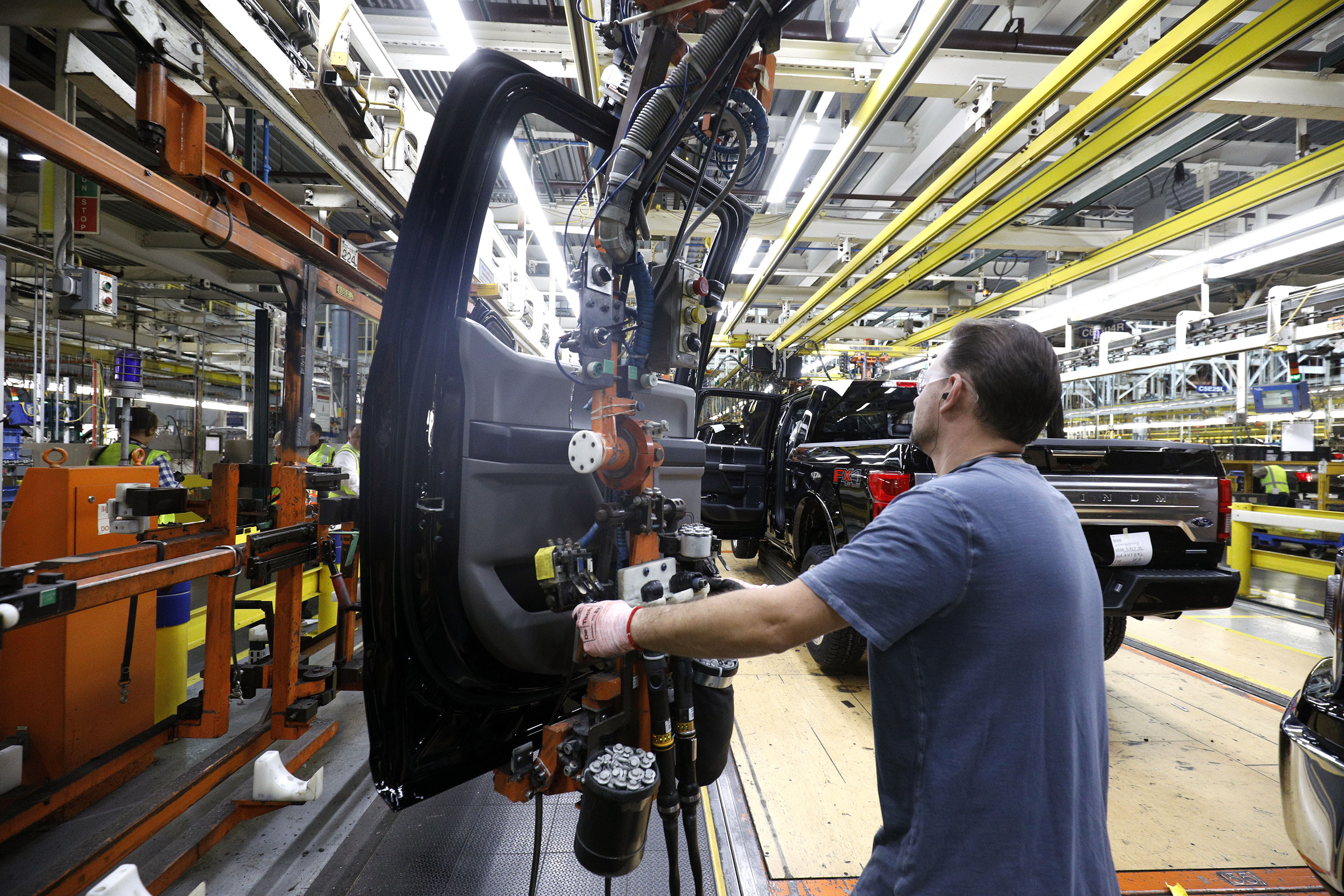There was a time when certain jobs were thought to be secure enough for a lifetime career, but now, with advances in technology and changes in the way we live, it seems that no position is truly stable long-term.
Of course, emergent tech also brings new opportunities, such as gig work and experience-based positions that don’t even require a degree.
However, if you are considering a new career or seeking higher education in the hopes of landing an awesome job, it is wise to research the forecasted future of your desired position. Check out the following fastest-declining jobs, according to the Bureau of Labor Statistics, some of which might surprise you.
Parking Enforcement Workers
Typically working with law enforcement, these employees patrol assigned areas and issue tickets to vehicles violating parking laws. Working in public parking lots or city streets, parking enforcement workers serve to bring in revenue for the city or area they serve (while angering a good deal of people in the process!). These positions are declining rapidly, however, primarily due to government budget cuts.
Word Processors And Typists
You might think a word processor is just an office application for your computer. However, word processors, sometimes called typists, are employees who set up and produce office documents, such as reports and letters, for other staff members’ use. Perhaps because word processing software has become increasingly user-friendly and so many people these days can type quickly, these positions are on the way out.
Watch Repairers

While most people once looked to their wrists to determine the time, many now pick up their mobile devices instead. One study found that just 32% of consumers wear watches, and many of these are smartwatches or fitness trackers. This trend away from traditional wristwatches is apparent in the watch repair industry.
“About 400 watchmakers retire every year,” Jordon Ficklan, executive director of the American Watchmakers-Clockmakers Institute told the Waco Tribune-Herald. “But only 75 to 100 enter the profession.”
Computer Operators

Computer operators monitor and control electronic data processing equipment. They respond to error messages and enter commands at a primary computer terminal. Because of changes in technology such as cloud computing, these positions are becoming decreasingly relevant or necessary.
Motor Vehicle Electronic Equipment Installers

Upgrading from a stock sound system in your ride has often meant a trip to a local automotive audio retailer. The shops not only offer the latest tech, but also technicians to install it as if it came with the car. However, as more vehicles come with these upgrades direct from the dealer, these jobs are likely to decline.
Assemblers And Fabricators

People who work as assemblers and fabricators create parts and/or put them together to create finished products. Robotic technology has already caused a decline in the need for these positions. In addition, 3D printing technology could put fabricators out of work.
Data Entry Keyers
Entry-level data-entry positions were once hot and plentiful. Businesses needed hardcopy data in electronic format. While they still do, there are quicker, automated ways to transform the information, such as OCR, which stands for optical character recognition. Scanning software can now be used to convert pages into editable text.
Postal Workers

It used to be that a job with the U.S. Postal Service meant security, but the times, they are a-changin’. Automated systems are taking on the job of sorting mail and cluster mailboxes save time on delivery. Plus, the increased use of other delivery services means fewer people are using traditional mail.
Forest And Conservation Workers
While it may seem like any job related to conserving natural resources will stick around, that’s not the case for forest and conservation workers, who are generally supervised by foresters and conservation technicians. Their primary duties are to gauge, develop, maintain and make improvements to the quality of the forests where they work. Although the demand for these services remains steady, researchers are finding ways to automate many of these tasks.
Switchboard Operators
Employees whose job it is to connect callers to their desired extensions are a dying breed, as are answering service personnel, who take messages or make appointments for other professionals. Thanks to automated telephone information services and online technology, real people are no longer necessary for these jobs. Artificial intelligence has even made it possible to ask questions or interact with these services.
Meter Readers
Working for a municipality or utility company, meter readers visit homes in a specific area each month to record meter readings. These numbers help determine the monthly bill amount for utility customers. With the rise in smart meters, which can be read remotely, the positions are declining.
Textile Machine Operators
Working in a factory setting, textile machine operators set up, operate or tend to machines that create or cut textiles. The machines might knit, weave or dye materials, as well. While textiles are still in demand, many of the jobs associated with them are being automated or outsourced to other countries.
Photographic Processors
Developing film and processing photos was once a much-needed skill. Although many professional and hobbyist photographers still use cameras with film, digital photography definitely has a strong foothold. As this trend continues, the number of photographic process workers and processing machine operators will decline.
Insurance Underwriters
When you apply for insurance, an underwriter evaluates your information to decide whether the company will offer you coverage and, if so, under what terms. There is now software that can perform the same job automatically. As this technology becomes more commonly used, this job market will decline.
General Office Clerks
General office clerks perform a range of clerical tasks, from answering phones to sorting mail to retrieving files. As more of these tasks can be automated, the need for clerks will diminish. In addition, people in similar positions can pick up the remaining duties.
Floral Designers And Florists

Arranging fresh flowers and plants, taking orders and making deliveries are some of the most common tasks for a florist or floral designer. Although the need for these services might continue with special events, the industry is already waning. Since customers can shop online or pick up a bouquet with their groceries, convenience seems to be overcoming specialization.
Purchasing Managers, Buyers And Purchasing Agents

People with this job decide on products or services to buy for their businesses to either resell or use. New technology is offering ways to automate finding suppliers, processing orders and procuring merchandise. This along with the use of third-party services is projected to cause a downswing in positions.
Bookkeeping, Accounting And Auditing clerks
Crunching numbers is another skill that A.I. seems to be taking over. Cloud computing allows those with bookkeeping skills to perform more work from any location. Routine accounting tasks are expected to largely become automated, as well.
Cashiers

While there is nothing like service with a smile, cashiering jobs could go the way of the dinosaur. Chances are good that you have recently been to a store with self-checkout kiosks. Advances in technology paired with an increase in online shopping could largely shrink this field.
Bank Tellers
When you think of tellers as cashiers for banks, you might see why these jobs are dwindling, too. Whether you need to grab some cash or deposit your check, you probably hit the ATM. And even more banks let you make transactions anywhere, with online banking and mobile apps.
Secretaries And Administrative Assistants
If you have ever worked as a secretary or administrative assistant, you might wonder how these jobs could ever go away. People in these positions do a little of everything to help workplaces run more efficiently. However, with a combination of technology and an upsurge in virtual assistant jobs, there could be a downturn in positions available.
Bill And Account Collectors

Creditors are not going to throw in the towel and stop pursuing their debtors, but several factors might cause a decrease in debt collection jobs. A combination of software, automation and outsourcing jobs to workers in other countries all play a role in this decline.
Travel Agents
For a fee, travel agents help people plan vacations and holidays. They find lodging, give advice on attractions, offer transportation options and more. With an ever-packed landscape of travel websites, though, travel agents are becoming obsolete.
Radio And Television Announcers
Emcees and DJs work in a variety of fields, such as interviewing guests, announcing acts and hosting events. Many radio and television stations are centralizing and consolidating operations, allowing them to hire fewer announcers. Other techniques, such as prerecorded broadcasts, will continue to decrease the number of positions available, as well.
Reporters
Reporters, correspondents and broadcast news analysts inform the public about local, national and international news and events. They work for television and radio stations as well as printed publications, such as newspapers and magazines. With the decline in newspaper circulation and the increase in online content, the need for these positions decreases.
Sponsored Content





















